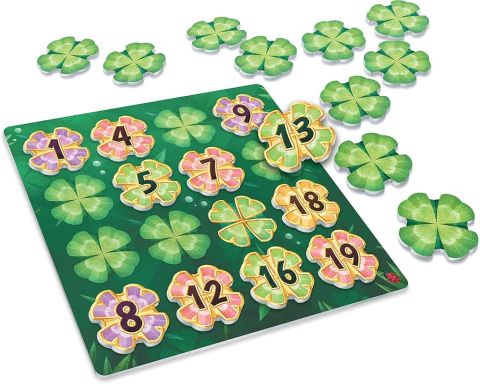Do You Have a Lucky Number? Here's Why That's Totally Fine
Think about this: do you ever catch yourself supporting jersey number 7? Picking your birthday off lottery slips? Or do you avoid number 13 like the plague? Well, you're certainly not unusual if so. Cultures, age, and backgrounds are irrelevant; people everywhere have lucky numbers, and here's the cool part: there's actually science (and a little bit of magic) involved.
Whether you're picking a lucky number on Roobet as you spin a virtual wheel or crossing your fingers each time you land 8 on the roulette table, the charm of "your" number feels strangely close.
Why? Why do we form a connection with numbers, and is it just harmless fun, or something else?
Let's break it down.
We all choose our lucky numbers based on memorable experiences: a birthday, a house number, a winning game, or something that "feels right." Others are influenced by:
- Cultural beliefs (e.g. 8 is lucky in China)
- Religious associations (7 days of creation)
- Pop culture (James Bond's 007)
- Superstition (avoid 13 like the apocalypse)
In a way, it's not so different from having a favorite color or song. Numbers become part of our identity.
The Psychology of Magical Thinking
Beneath lucky numbers is a phenomenon psychologists refer to as magical thinking, the idea that your behavior, symbols, or rituals can affect separate results.
You know the kind:
- Wearing the same jersey to every game
- Touching the screen first before hitting "Spin"
- Only wagering on numbers that hold significance to you
Magical thinking is comforting. It makes you think you have control in an unpredictable world. When placing a wager or facing a high-stakes situation, clinging to your "lucky 11" feels like tipping fate your way.
Numbers and the Brain
Actually, our brains are not randomly assigning meaning to numbers. Science says that humans are wired to seek out patterns, and numbers are a big part of it.
Some figures are just cute (like symmetrical or cyclical numbers: 3, 7, 11, 22). Others are ingrained because they're associated with life events, birthdays, anniversaries, or auspicious dates.
There's also confirmation bias: when your lucky number comes up during a win, it confirms the belief that it's magical. When not, you blame it on bad luck, not a bad number. Our minds are primed to perpetuate the myth.
Cultural Impact: Not Every Number Was Born Equal
Lucky numbers are not universal. What was lucky in one place may be unlucky in another.
- China: 8 is extremely lucky (it sounds like "wealth" when spoken in Chinese), while 4 is avoided (because it sounds like "death").
- Japan: 7 is fortunate and typically associated with wealth and celebration.
- Italy: 17 is not fortunate, since its Roman numeral value (XVII) can be rearranged into "VIXI," or "I have lived" (a favorite dying phrase).
- Western cultures: 13 is widely shunned in buildings, flights, and seating charts due to age-old superstition.
Such superstitions govern how individuals gamble, play, and live, down to the floor plan of hotel rooms and lottery tickets.
Lucky Numbers in Gambling
No surprise there, for lucky numbers abound in gambling. Whether choosing bingo, roulette, or slot numbers, customers have a tendency to rely on personal routines.
And yes, statistically there's no advantage to choosing your "lucky 21" versus a random number, but if it makes you feel better or more confident, that's a psychological win in and of itself.
Numerology: The Ancient Science of Number Significance
If you've spent any time investigating the realm of astrology, tarot, or metaphysical work, chances are you've heard of numerology. This old art uses more significance attached to numbers based on birth dates, names, and life path.
For example:
- 1 is for mastery and self-sufficiency
- 7 is for self-reflection and insight
- 11 is sometimes thought to be a "master number" with innovative and vision-bearing energies
Numerology practitioners use numerology to learn about their personality, predict the future, or even choose the "right" days to make a decision.
Whether you do or not, it's another example of how numbers take on emotional power in time.
Is Having a Lucky Number Silly? Not at All.
Let's be realistic: things are unpredictable. Having a lucky number, or small superstition, is not unreasonable. It's human nature.
Lucky numbers give people:
- A sense of self
- A confidence boost
- A harmless ritual that gives meaning
- A connection to culture or heritage
Unless it’s causing harm (e.g. gambling addiction or obsession), believing in lucky numbers is no different than knocking on wood or wishing on a star. It’s a small way to bring a little magic into your day.
Final Thoughts: Your Number, Your Rules
Maybe your lucky number won you a game for you once. Maybe it's your birthday. Or maybe you picked randomly when you were ten and it's stuck that way ever since.
Whatever the reason, there's nothing strange about having a number that you fall back on when it counts.
Just remember: the universe doesn't owe you a win, but if your lucky 3 gives you the courage to play, why not?
